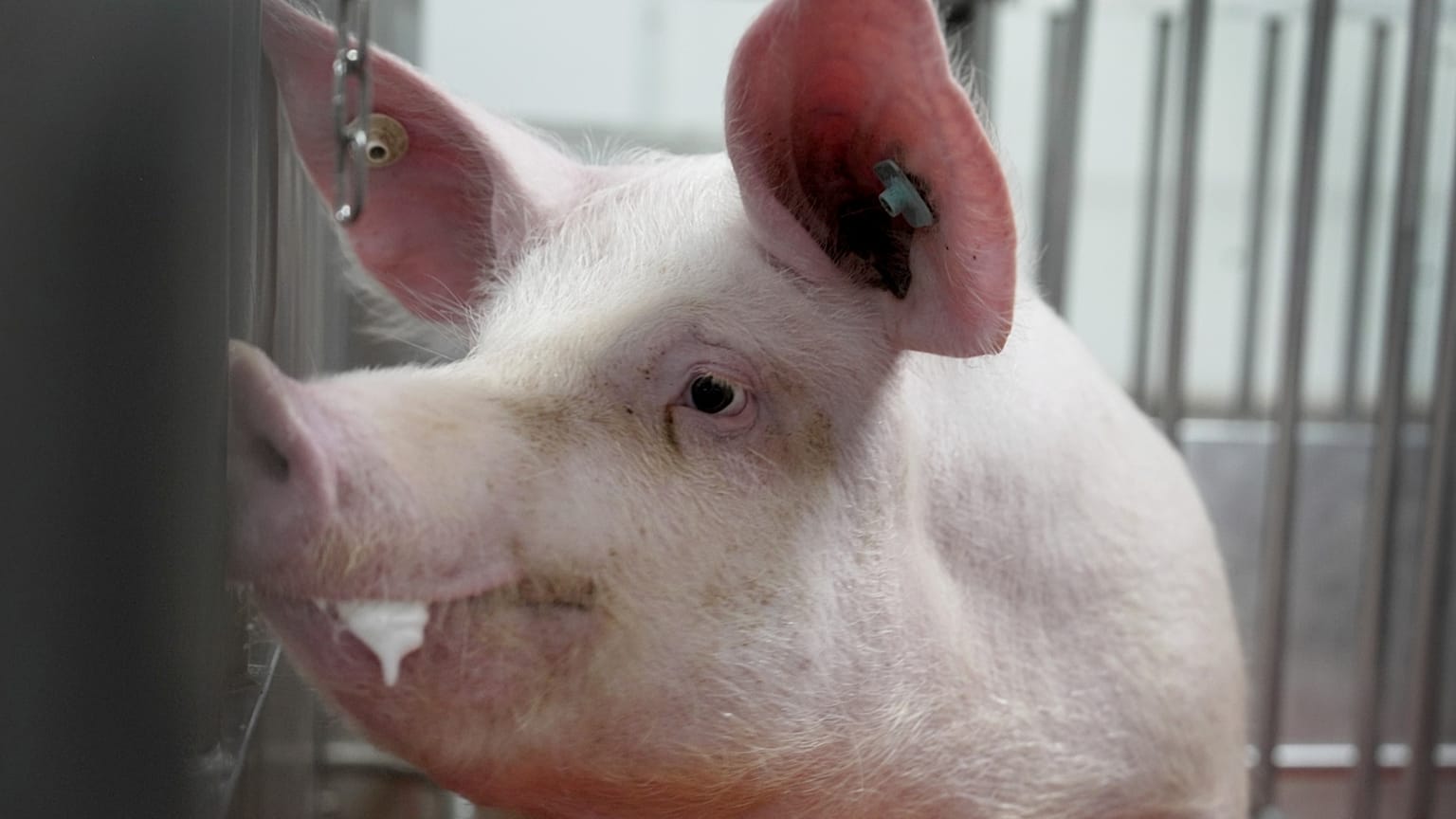Science
Pioneering Clinical Trial for Pig Kidney Transplants Begins in US

The first clinical trial investigating the viability of transplanting pig kidneys into humans has commenced in the United States. United Therapeutics, a company specializing in gene-edited pig organs, confirmed that the initial transplant was successfully conducted at NYU Langone Health in New York City. This trial marks a significant advancement in the field of xenotransplantation, the process of using animal organs for human transplants.
In addition to United Therapeutics, another US firm, eGenesis, is preparing to launch its own clinical trial involving pig kidneys in the upcoming months. These studies represent the first known clinical trials of xenotransplantation globally. Researchers have opted not to disclose specific details about the timing of the surgery or the identity of the patient to maintain confidentiality.
Dr. Robert Montgomery, who led the transplant team at NYU, indicated that the hospital has received interest from additional patients wishing to participate. The initial phase of the trial will include six participants, with plans to potentially expand to as many as 50 as more transplant centers join the effort.
The US Food and Drug Administration (FDA) has authorized these rigorous trials following a series of “compassionate use” procedures that produced mixed results. Early attempts at gene-edited pig kidney transplants yielded limited success, with the first two transplants lasting only a short period. Subsequently, doctors shifted focus to patients who were in urgent need of a kidney but were not as critically ill as previous recipients.
At NYU, a female patient received a pig kidney that functioned for 130 days before she had to return to dialysis. In a notable case at Massachusetts General Hospital, a male patient had a pig kidney that lasted a record-setting 271 days before it began to fail, leading to its removal last month. Other patients known to have received pig kidneys include another individual at Massachusetts General and a woman in China.
“This thing is moving in the right direction,” Dr. Montgomery stated, reflecting on the learning curve associated with each patient’s experience. He emphasized that the ability to return to dialysis creates a safety net for those undergoing these experimental procedures.
The demand for kidney transplants is urgent, with over 100,000 individuals on the US transplant list, the majority of whom require kidney replacements. In Europe, more than 10,000 people are waiting for kidney transplants, according to the Eurotransplant International Foundation, which facilitates organ donations across several European countries.
To address the organ shortage crisis, scientists are genetically modifying pigs to produce organs that are more compatible with the human immune system. The kidneys involved in United Therapeutics’ trial feature 10 gene edits designed to eliminate pig genes that could provoke immediate rejection or excessive organ growth while introducing human genes to enhance compatibility.
As this groundbreaking trial unfolds, the hope is that xenotransplantation could provide a viable solution to the pressing organ shortage, potentially saving thousands of lives.
-

 Top Stories2 months ago
Top Stories2 months agoTributes Surge for 9-Year-Old Leon Briody After Cancer Battle
-

 Entertainment3 months ago
Entertainment3 months agoAimee Osbourne Joins Family for Emotional Tribute to Ozzy
-

 Politics3 months ago
Politics3 months agoDanny Healy-Rae Considers Complaint After Altercation with Garda
-

 Top Stories3 months ago
Top Stories3 months agoIreland Enjoys Summer Heat as Hurricane Erin Approaches Atlantic
-

 World4 months ago
World4 months agoHawaii Commemorates 80 Years Since Hiroshima Bombing with Ceremony
-

 Top Stories2 months ago
Top Stories2 months agoNewcastle West Woman Patricia Foley Found Safe After Urgent Search
-

 Top Stories4 months ago
Top Stories4 months agoFianna Fáil TDs Urgently Consider Maire Geoghegan-Quinn for Presidency
-

 World4 months ago
World4 months agoGaza Aid Distribution Tragedy: 20 Killed Amid Ongoing Violence
-

 World4 months ago
World4 months agoCouple Convicted of Murdering Two-Year-Old Grandson in Wales
-

 Top Stories3 months ago
Top Stories3 months agoClimbing Errigal: A Must-Do Summer Adventure in Donegal
-

 World4 months ago
World4 months agoAristocrat Constance Marten and Partner Convicted of Infant Murder
-

 Top Stories3 months ago
Top Stories3 months agoHike Donegal’s Errigal Mountain NOW for Unforgettable Summer Views









